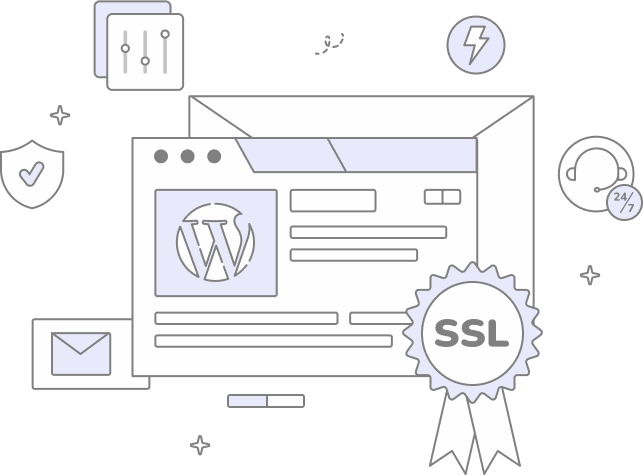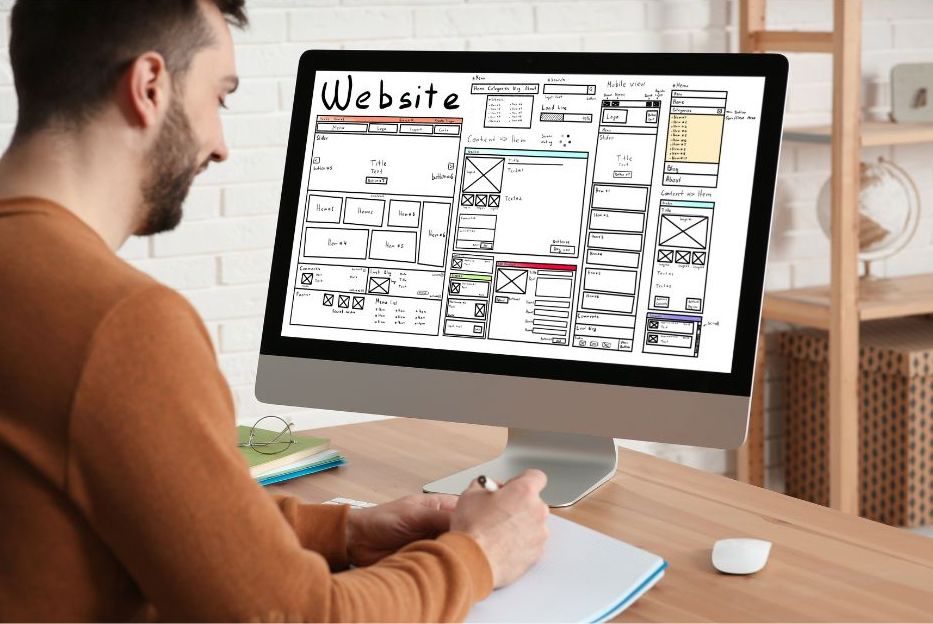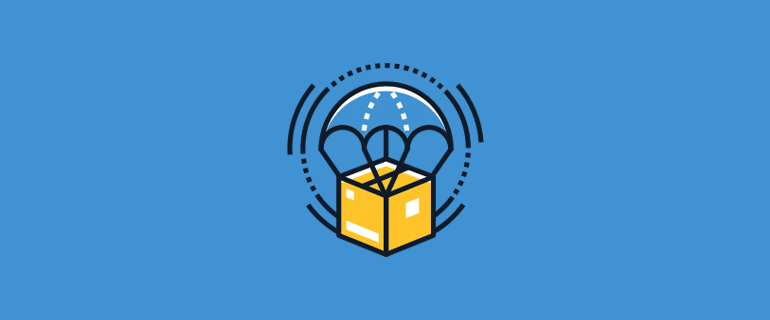Fully managed
WordPress VPS Hosting
Our fully managed WordPress VPS Hosting includes WordPress management tools, offsite backups, SSL certificates, website emails, and enterprise security.

Fully managed WordPress VPS Servers
Stablepoint take care of complete server management. You do not need to do anything or have technical experience. We guarantee server uptime.

Offsite backups included
Twice daily offsite backups included with all WordPress VPS Plans. Self-restore your WordPress site up to 30 days in the past.

Public cloud providers
We deploy your VPS to premium cloud infrastructure to ensure your site always runs well. We can scale your VPS server easily and refresh it to always-new hardware.

Free SSL certificates
SSL certificates for your WordPress site and any subdomains. Works automatically with no input from you.

WordPress tools
Tools to help you run WordPress better, including auto-installers and more. We will even help migrate your site to Stablepoint.
Why choose Stablepoint for WordPress VPS Hosting?
At Stablepoint we look after over one hundred thousand WordPress websites. Many of these are on managed WordPress VPS Servers.
On a managed VPS server we take care of the entire hosting environment. We provide everything needed for your WordPress VPS Hosting.
We include - Free migrations - Full server management - 24/7 Technical support - SSL certificates - Backups - cPanel control panel

Do you need WordPress VPS Hosting?
VPS hosting is a powerful way to host your WordPress site. Unlike traditional shared hosting you get your own dedicated hardware and resources just for your website.
One of the most useful benefits of a VPS is that it doesn’t share any resources with other sites on the same server. If one site starts to use more resources than it should, it won’t impact the performance of the other sites on the same server. The lack of sharing also ensures security benefits.
No longer fighting for resources!
On traditional shared hosting, a web hosting package utilises shared server resources with other sites. This means that other sites could cause bad neighbour problems. While most shared hosting systems (including ours) have protections in place both for security, and to prevent one website from impacting the performance of other websites, a VPS totally isolates websites from one another.
Uptime
WordPress is the leading platform for online retailers. One of the biggest things to think about when choosing a hosting provider is uptime. If your site goes down, your customers are not going to be able to find your site or see your products. Even if you manage to stay up, without good hosting, your site will run slowly, which can irritate customers and make them leave before making a purchase.
Managed vs. Unmanaged
There are two types of WordPress VPS hosting: managed and unmanaged. Managed hosting means that your hosting provider will take care of the day-to-day tasks for you, such as updating your software, optimizing performance, and handling hardware problems. You just focus on building your website. Unmanaged hosting leaves the upkeep of the server to the user.
If you want to be an expert at handling server problems, you need to know how the server should be running to avoid any hiccups. If you know how to fix these issues as soon as they appear, you will be able to do so without relying on tech support.
Backups and security
A disaster just happened and your data is lost. What do you do? Data backups are an essential tool for preserving your site's integrity. Without a backup, unexpected events — such as a natural disaster — can result in massive data loss and take days or weeks to correct.
Make sure to check on the backup policies and typical restoration times that a VPS host offers. This is important in case something goes wrong.
The best WordPress VPS hosting companies offer automatic backups, which means a lot less work for you. You won't have to worry about saving changes or making updates because it all gets saved automatically.
cPanel Control Panel
Seek out an intuitive, user-friendly interface like cPanel because it will make your life easier.
Stablepoint offers an excellent cPanel control panel as standard. This gives you the ability to manage your website and emails through an easy-to-use graphical interface.
Advanced users or developers have the ability to change PHP versions and settings, manage SSH credentials, restore backups, create and import databases and much more.
For those with multiple sites, we provide the WHM (Web Host Manager) panel also. This enables you to resell hosting to your clients if you wish.
CPU Capacity and Memory
Does the number of visitors to your site affect the amount of RAM a VPS requires? For example, more memory-intensive programs and applications required for a site means it will have a higher load that affects its infrastructure. More people accessing the site means these programs will be running more often and require more RAM.
You want enough disk space to not only handle your current website but also provide room for future growth. The same applies to bandwidth.
WordPress Guides from our Blog
We include articles from our blog on the latest WordPress tips and tricks.
WordPress VPS Hosting FAQs
Do WordPress VPS Servers different from Stablepoint's standard VPS servers?
No - they are identical. All of our hosting is set up to run WordPress perfectly.
Because WordPress accounts for approximately 40% of websites online (and a much large proportion of websites we host at Stablepoint), our web hosting services are essentially all geared towards WordPress.
How do I install WordPress with you?
As part of our software stack we have included an application installer (Softaculous Apps Installer) which integrates directly into the cPanel dashboard. If you are using the default cPanel dashboard layout you can find a list of the most popular software installations by scrolling to the Softaculous Apps Installer tab.
Simply click on the WordPress icon and follow the installer steps to deploy it under your chosen domain name.
I have a WordPress site with another host, can you transfer it over?
Yes, once you've purchased your chosen hosting package - simply raise a migration support ticket within our client area and send over your old hosting account logins through the secure area. We will migrate your Wordpress site as is and transfer everything without causing any downtime and is usually done within 24 hours (usually much sooner!).
Can you maintain my WordPress website
At Stablepoint we are a web host, so we can't maintain your WordPress website.
However, we can recommend fixed.net who provide WordPress Maintenance Services.
Welcome all {{ brandName }} customers
Stablepoint welcomes {{ brandName }} customers - We are delighted to welcome {{ brandName }} customers to the Stablepoint family. All products and prices remain the same. You can log into your new client area at clients.stablepoint.com. Read more on our Stablepoint blog.
Client Area




